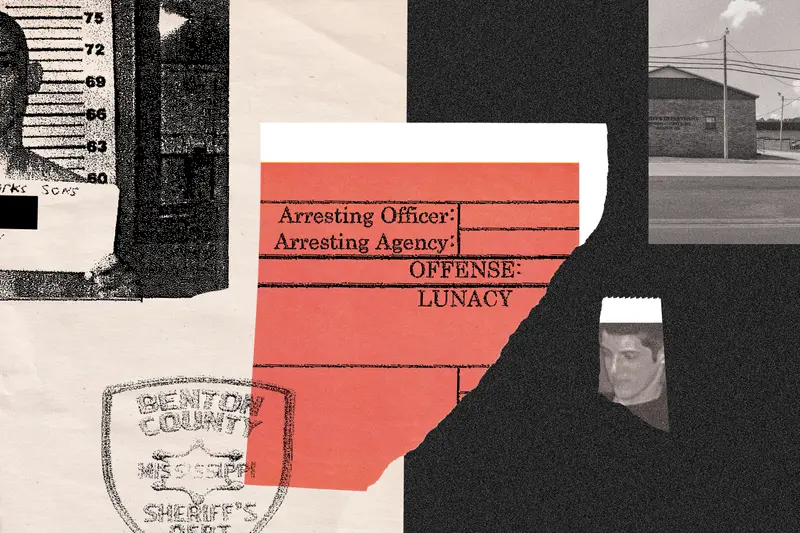In Mississippi, many people awaiting court-ordered treatment for mental illness or substance abuse are jailed, even though they haven’t been charged with a crime.
This article contains detailed descriptions of mental illness and suicide.
This article was produced for ProPublica’s Local Reporting Network in partnership with Mississippi Today. It was also co-published with Sun Herald, Northeast Mississippi Daily Journal and The Guardian. Sign up for Dispatches to get stories like this one as soon as they are published.
When sheriff’s department staff in Mississippi’s Benton County took Jimmy Sons into custody several years ago, they followed their standard protocol for people charged with a crime: They took his mug shot, fingerprinted him, had him change into an orange jumpsuit and locked him up.
But Sons, who was then 20 years old, had not been charged with a crime. Earlier that day, his father, James Sons, had gone to a county office to ask that his youngest son be taken in for a mental evaluation and treatment. Jimmy Sons had threatened to hurt family members and himself, and his father had come across him sitting on his bed with a loaded shotgun.
On Sons’ booking form, in the spot where jailers usually record criminal charges, was a single word: “LUNACY.”
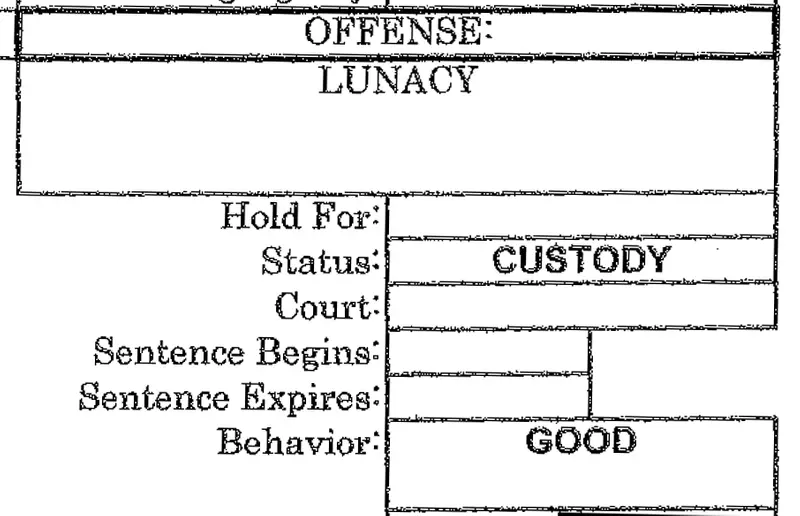
In every state, people who present a threat to themselves or others can be ordered to receive mental health treatment. Most states allow people with substance abuse problems to be ordered into treatment, too. The process is called civil commitment.
But Mississippi Today and ProPublica could not find any state other than Mississippi where people are routinely jailed without charges for days or weeks during that process.
What happened to Sons has occurred hundreds of times a year in the state.
The news organizations examined jail dockets from 19 Mississippi counties — about a quarter of the state’s 82 — that clearly marked bookings related to civil commitments. All told, people in those counties were jailed at least 2,000 times for civil commitments alone from 2019 to 2022. None had been charged with a crime.
Most were deemed to need psychiatric treatment; others were sent to substance abuse programs, according to county officials.
Since 2006, at least 13 people have died in Mississippi county jails as they awaited treatment for mental illness or substance abuse, Mississippi Today and ProPublica found. Nine of the 13 killed themselves. At least 10 hadn’t been charged with a crime.
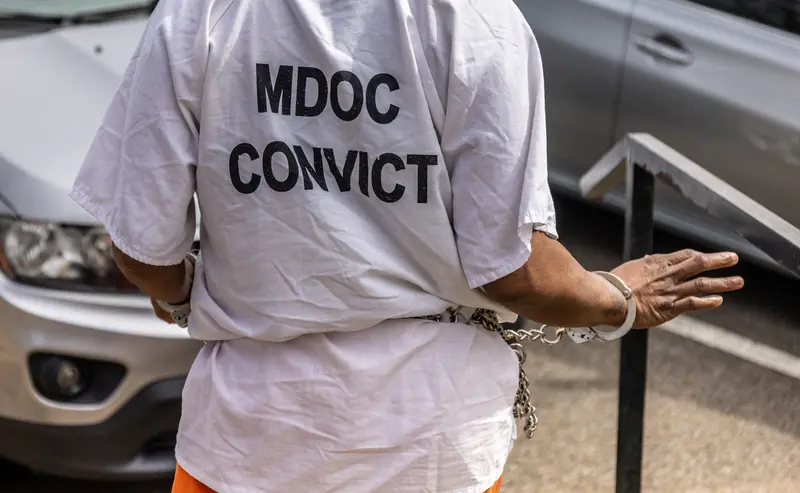
We shared our findings with disability rights advocates, mental health officials in other states and 10 national experts on civil commitment or mental health care in jails. They used words such as “horrifying,” “breaks my heart” and “speechless” when they learned how many people are jailed in Mississippi as they go through the civil commitment process.
Some said they didn’t see how it could be constitutional.
“If an ER is full, you don’t send people to jail,” said Megan Schuller, legal director of the Bazelon Center for Mental Health Law, a Washington, D.C.-based organization. “This is just outright discriminatory treatment in my view.”
Mississippi Today and ProPublica also interviewed 10 individuals who had been committed and jailed, as well as 20 family members.
Many of those people said they or their family members had been housed alongside criminal defendants. Nobody knew how long they would be there. They were often shackled when they left their cells. Some of them said they couldn’t access prescribed psychiatric medications or had minimal medical care as they experienced withdrawal from illegal drugs.
“It felt more criminal than, like, they were trying to help me,” said Richard Millwood, who was booked into the DeSoto County jail in 2020 following an attempted suicide. “I got the exact same treatment in there as I did when I was in jail facing charges. In fact worse, in my opinion, because at least when I was facing charges I could bond out.”
“I got the exact same treatment in there as I did when I was in jail facing charges. In fact worse, in my opinion, because at least when I was facing charges I could bond out.”
I got the exact same treatment in there as I did when I was in jail facing charges. In fact worse, in my opinion, because at least when I was facing charges I could bond out.”
Richard Millwood, who was booked into jail following an attempted suicide
DeSoto County leadership, informed of Millwood’s statement, did not respond.
Millwood spent 35 days in jail before being admitted to a publicly funded rehab program 90 miles away.
Jimmy Sons didn’t receive a mental evaluation when he was booked into the Benton County jail in September 2015, according to documents in a lawsuit his father later filed. Less than 24 hours later, he was dead. Left alone in a cell without regular visits by jail staff, he had hanged himself.
He had been back in Mississippi for just a few days, planning to join his dad in electrical work, said his mother, Juli Murray. He had set out from her home in Bradenton, Florida, so early in the morning that he didn’t say goodbye.
Murray remembers the phone call from Jimmy’s half-brother in which she learned her son was in jail. She didn’t understand why.
“If you do something wrong, that’s why you’re in jail,” she said. “Not if you’re not mentally well. Why would they put them in there?”
The Lesser Sin
When James Sons went to the clerk’s office in the tiny town of Ashland to file commitment paperwork for his son, he took the first step in Mississippi’s peculiar, antiquated system for mandating treatment for people with serious mental health problems.
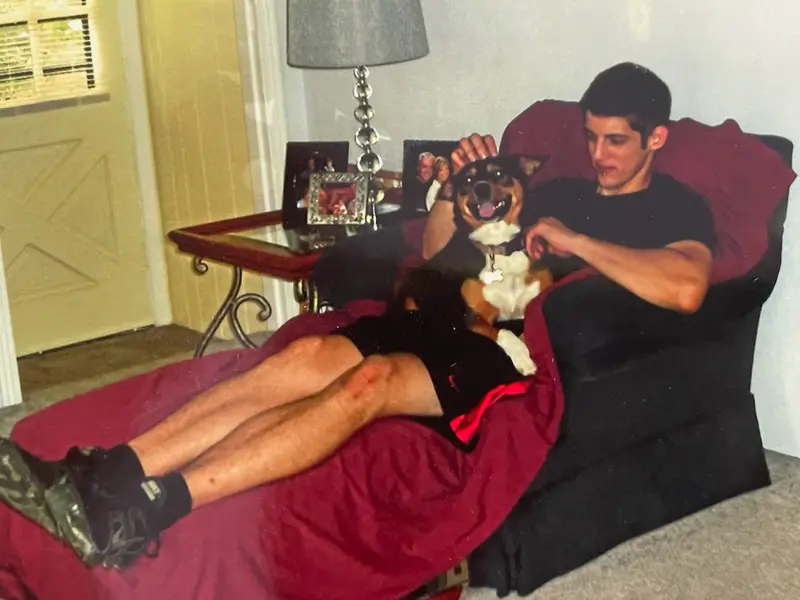
It starts when someone — usually a family member, but it could be almost anyone — signs a form alleging that the person in question is “in need of treatment because the person is mentally ill under law and poses a likelihood of physical harm to themselves or others.”
James Sons filled out that form, listing why he was concerned: Jimmy’s guns, his threats, his talk of suicide.
Then a special master — an attorney appointed by a chancery judge to make commitment decisions — issued a “Writ to Take Custody.” It instructed sheriff’s deputies in Benton County, just south of the Tennessee border, to hold Jimmy Sons at the jail until he could be evaluated.
The sheriff’s office asked Sons to come in on an unrelated matter. When he showed up, Chief Deputy Joe Batts told him he needed a mental health evaluation. Batts tried to reassure Sons that the process would be as quick as possible and would end with him back home, according to Batts’ testimony in the lawsuit Sons’ father filed over his death.
Then Batts told Sons, “What we’re going to have to do now is take you back and book you.”
What he never told Sons, he later acknowledged in a deposition, was that the young man would have to wait in jail for days before he would see a mental health provider. The first screening required by law was four days away. If it concluded he needed further examination, he would be evaluated by two more medical professionals. Then the special master would decide whether to order him into treatment at a state psychiatric hospital.
The whole process should take seven to 10 days, according to the state Department of Mental Health. But sometimes it takes longer, the news organizations found. And if someone is ordered into treatment at their hearing, they generally have to wait for a bed, though the department says average wait times for state hospital beds after hearings have dropped dramatically in the last year.
While waiting for their hearing, people like Sons are supposed to receive treatment at a hospital or a short-term public mental health facility called a crisis stabilization unit. But state law does allow people to be jailed before their commitment hearing if there is “no reasonable alternative.” (The law is less clear about what’s allowed following a hearing.)
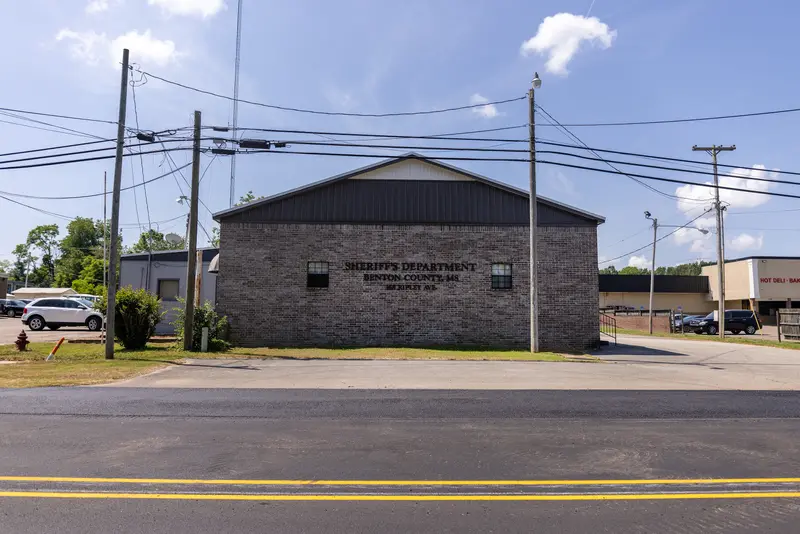
Mississippi Today and ProPublica spoke to dozens of officials across Mississippi involved in the commitment process: clerks who handle the paperwork, chancery judges and special masters who sign commitment orders, sheriffs who run the jails, deputies who drive people from jails to state hospitals, and the head of the state Department of Mental Health.
None of them thinks jail is the right place for people awaiting treatment for mental illness.
“We’re not a mental health hospital,” said Greg Pollan, president of the Mississippi Sheriffs’ Association and the sheriff of rural Calhoun County in the north of the state. “We’re not even a mental health Band-Aid station. That’s not what we do. So they should never, ever see the inside of my jail.”
Batts himself, who took Sons into custody in Benton County, said law enforcement officers across Mississippi “hate to detain people like that. But we’re told we have to do it.” He acknowledged that the facility “was substandard to begin with, not having the space and the adequate facilities to hold and monitor someone in that mental state — it just puts everybody in a bad situation.” And he said he thought the state could provide alternatives to jail.
Some counties jail most people going through the commitment process for mental illness, Mississippi Today and ProPublica found. Other counties reserve jail for people who are deemed violent or likely to hurt themselves. And at least a handful sometimes jail people committed for substance abuse — even though a 2021 opinion by the state’s attorney general says that isn’t allowed under state law.
This happens because until people are admitted to a state hospital, counties are responsible for covering the costs of the commitment process unless the state provides funding. If a crisis stabilization unit is full or turns someone away, the county must find an alternative, and it must foot the bill.
Counties can place patients in an ER or contract with a psychiatric hospital — and some do — but many officials balk at the cost. Many officials, particularly those in poor, rural counties, see jail as the only option.
“You have to put them somewhere to monitor them,” said Cindy Austin, chancery clerk in rural Smith County, located in central Mississippi. Chancery clerks are responsible for finding beds for people going through the commitment process. “It’s not that anybody wants to hold them in jail, it’s just we have no hospital here to hold them in.”
Timothy Gowan, an attorney who adjudicated commitments in Noxubee County from 1999 to late 2020, said people going through the commitment process there generally were jailed if they were determined to be violent and their family didn’t want them at home.
According to the Noxubee County jail docket, people going through the civil commitment process with no criminal charges were booked into the jail about 50 times from 2019 to 2022. Ten stays lasted at least 30 days. The longest was 82 days.
“Putting a sick person in a jail is a sin,” Gowan said. “But it’s the lesser of somebody getting killed.”
Some counties rarely hold people in jail — sometimes because a sheriff, chancery judge or other official has taken a stand against it. Rural Neshoba County in central Mississippi pays Alliance, a psychiatric hospital in Meridian, to house patients.
“We’re not a mental health hospital. We’re not even a mental health Band-Aid station. That’s not what we do. So they should never, ever see the inside of my jail.”
We’re not a mental health hospital. We’re not even a mental health Band-Aid station. That’s not what we do. So they should never, ever see the inside of my jail.”
Greg Pollan, president of the Mississippi Sheriffs’ Association and sheriff of Calhoun County
The practice isn’t confined to poor, rural counties. DeSoto County, a populous, relatively wealthy county near Memphis, jailed people without charges about 500 times over four years, the most of any of the counties analyzed by Mississippi Today and ProPublica. The median jail stay there was about nine days; the longest was 106.
The state and county recently set aside money to build a crisis stabilization unit — currently, the nearest one is about 40 miles away — but the county and the local community mental health center haven’t decided on a location, said County Supervisor Mark Gardner.
Some county officials say that keeping people out of jail during the process requires the state to step up. State Rep. Jansen Owen, a Republican from Pearl River County in southern Mississippi who represents people during the commitment process, said he believes counties that spend “millions of dollars on fairgrounds and ballparks” could find alternatives to jail. But he also sees a need for more state-funded facilities.
“You can’t just throw it on the counties,” he said. “It’s a state prerogative. And them being held in the jail, I think, is a result of the state kicking the can down the road to the counties.”
Wendy Bailey, head of the state Department of Mental Health, said it’s “unacceptable” to jail people simply because they may need behavioral health treatment. Department staff have met with chancery clerks around the state to urge them to steer families away from commitment proceedings and toward outpatient services offered by community mental health centers whenever possible.
The Department of Mental Health says it prioritizes people waiting in jail when making admissions to state hospitals. The state has expanded the number of crisis unit beds from 128 in 2018 to 180 today, with plans to add more. And it has increased funding for local services in recent years in an effort to reduce commitments.
But Bailey said the department has no authority to force counties to change course, nor legal responsibility for people going through the commitment process until a judge orders them into treatment at a state psychiatric hospital.
Locked in the “Lunacy Zone”
Willie McNeese’s problems started after he came home to Shuqualak, Mississippi, a town of about 400 people and a lumber mill, in 2007. He had spent a decade in prison starting at age 17.
He found the changes that had taken place — bigger highways, cellphones — overwhelming, said his sister, Cassandra McNeese. He was eventually diagnosed with bipolar disorder.
“It’s like a switch — highs and lows,” said Willie McNeese, now 43. “I might have a whole lot of laughter going on, trying to make the next person laugh. Then my day going down, I be depressed and worried about situations that nobody can change but God.”
McNeese has been involuntarily committed in Noxubee County 10 times since 2008 and has been jailed during at least eight of them, one for more than a month in 2019 according to court records and the jail docket. During his most recent commitment starting in March 2022, McNeese was held in jail for a total of 58 days in two stints before eventually going to a state psychiatric hospital.
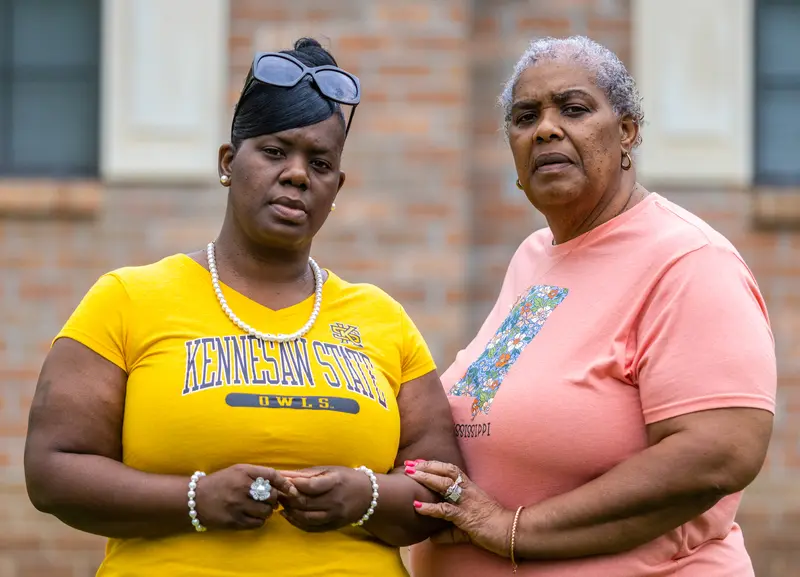
From 2019 to 2022, about 1,200 civil commitment jail stays in the 19 counties analyzed by Mississippi Today and ProPublica lasted longer than three days. That’s about how long it can take for people to start to experience withdrawal from a lack of psychiatric medications, which jails don’t always provide. About 130 stays lasted more than 30 days.
McNeese said he spent much of his time in jail last year standing near the door of his cell, what jail staff called the “Lunacy Zone,” screaming to be allowed to take a shower. A jailer tased him to quiet him down, and his clothes were taken from him. For a period, his mattress was taken, too.
“It’s a way of punishment,” he said. “They don’t handle it like the hospital. If you have a problem in the hospital they’ll come with a shot or something, but they don’t take your clothes or take your mattress or lock your door on you or nothing like that.”
McNeese said he had inconsistent access to medication and received none during his first stay in 2022, which lasted 25 days.
The Noxubee County Sheriff’s Department did not respond to questions about McNeese’s allegations.
Staff from Community Counseling, the community mental health center where McNeese had regular appointments, could have provided him with medication, but McNeese said no one from the center came to visit him in jail. A therapist at Community Counseling said staff go to the jail only when they’re called, usually when there’s a problem jail staff can’t handle. Rayfield Evins Jr., the organization’s executive director, said when he recently worked in Noxubee, deputies brought people from the jail to his facility for medication and treatment.
“If you have a problem in the hospital they’ll come with a shot or something, but they don’t take your clothes or take your mattress or lock your door on you or nothing like that.”
If you have a problem in the hospital they’ll come with a shot or something, but they don’t take your clothes or take your mattress or lock your door on you or nothing like that.”
Willie B. McNeese, jailed multiple times following a diagnosis for bipolar disorder
Mental health advocates in Mississippi and other people who have been jailed during the commitment process said the limited mental health treatment McNeese received is common.
Mental health care varies widely from jail to jail, and no state agency sets requirements for what care must be provided. Jails can refuse to distribute medications that are controlled substances, which includes anti-anxiety medications like Xanax. The state Department of Mental Health says counties should work with community mental health centers to provide treatment to people waiting in jail as they go through the commitment process.
But those facilities generally don't have the resources to provide services in jails, said Greta Martin, litigation director for Disability Rights Mississippi.
Martin’s organization, one of those charged by Congress with advocating for people with disabilities in each state, investigates county jails when it receives complaints. “We are not seeing any indication that these individuals are getting any mental health treatment while they are being held in these county facilities,” she said.
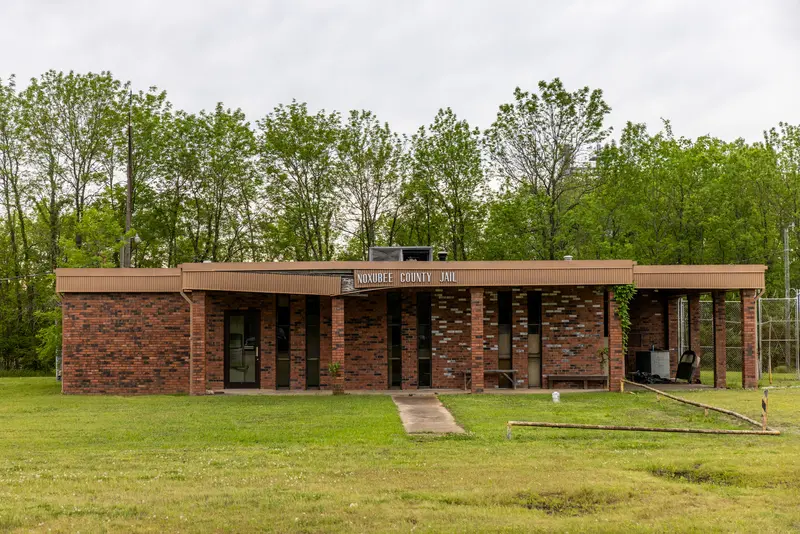
McNeese said those jail stays added physical discomfort and pain to the delusions that got him committed in the first place. “Then you get to the mental hospital — they have to straighten you all the way back over again,” he said.
Since being released from the state hospital last year, McNeese said, he has been doing well. He is now living in Cincinnati with his wife.
Scott Willoughby, the program director at South Mississippi State Hospital in Purvis, said it can be hard to earn patients’ trust when they arrive at the psychiatric hospital from jail.
At his facility, patients sleep two to a room in a hall decorated with photographs of nature scenes. Group counseling sessions are often held outside under a gazebo. In between, patients draw and paint during recreational therapy.
Willoughby has spoken with patients who had attempted suicide and were shocked to find themselves in jail as a result.
“People tend to associate jail with punishment, which is exactly the opposite of what a person needs when they’re in a mental health crisis,” he said. “Jail can be traumatic and stigmatizing.”
“I’m More Scared of Myself”
When Sons learned that he was going to be booked, he became anxious about being locked in a cell, Batts testified. So he was assigned to an area of the jail reserved for trusties — inmates who are allowed to work, sometimes outside the jail, while they serve their sentences.
On the afternoon of his first day in jail, Sons was sitting on his bed when a trusty named Donnie Richmond returned from work. Richmond said in a deposition that he asked a deputy who the new guy was.
“You better watch him,” Richmond recalled the deputy telling him. “He kind of off a little bit.”
Richmond offered Sons a cigarette and cookies and asked him why he was there. Sons took a cigarette and told Richmond the deputies had said he would hurt someone.
“He was like, ‘Man, I’m going to be honest with you,’” Richmond testified. “‘I ain’t going to hurt no one. I’m more scared of myself, of hurting myself.’”
Sons was not placed on suicide watch. The jail’s suicide prevention policy applied only to those who had attempted suicide in the jail, although attorneys for the jail officials in the lawsuit over his death said there was an unwritten policy to closely monitor people going through the commitment process.
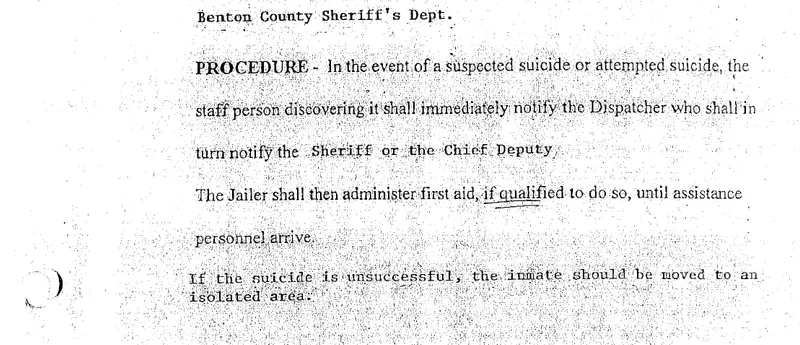
That evening, Sons told a jailer he was feeling anxious around the other men. He asked to be moved to a cell by himself.
A guard took him to a cinder block cell with no windows. There was no television and nothing to read. He was given a blanket.
A security camera in Sons’ cell was supposed to allow jail staff to watch him at all times. But jail officials said in depositions that no one noticed anything unusual the next morning.
At 11:28 a.m., Sons rose from his bunk bed, walked to the door and placed his ear near it. He went back to his bunk, fashioned a noose and tied it around his neck. He sat there for three minutes before hanging himself, according to a narrative of the video in court records.
He stopped moving just before 11:38 a.m. A trusty serving lunch peeked through a tray opening in the door 48 minutes later and saw his body.
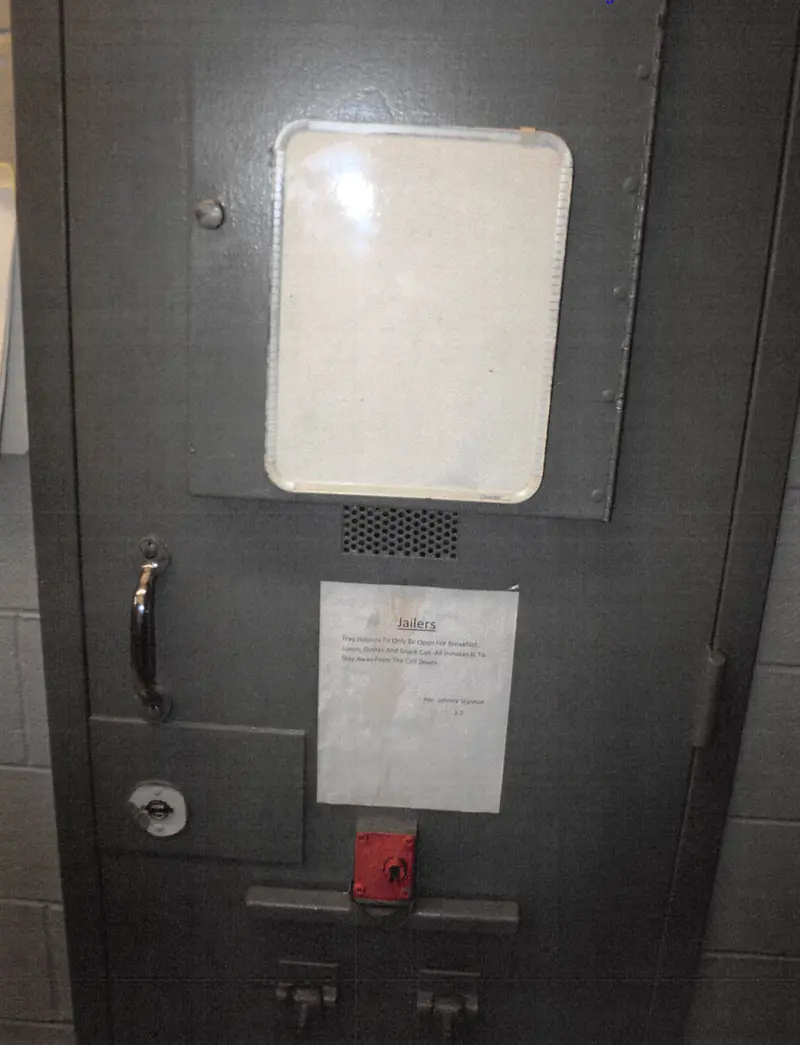
Sons’ father sued Benton County, the sheriff and several of his employees over his death. The defendants denied in court filings that they were responsible, but the county’s insurance company eventually settled the case for an undisclosed sum. (All that’s publicly known is that the county paid a $25,000 policy deductible toward defense costs.)
Sheriff’s department staff said in depositions they had kept an eye on Sons, but they couldn’t watch the video feed constantly. Lawyers for the defendants said there was no evidence sheriff’s department employees knew someone could kill himself in the way Sons did.
Sheriff A. A. McMullen, who is no longer in office, acknowledged in a deposition that “any mental commitment is a suicide risk,” but he said he wasn’t sure it would have made a difference if Sons had been placed on suicide watch.
“You could write up the biggest policy in the world and you couldn’t prevent it. There’s no way. God knows, you know, it hurts us,” he said. “If they’re going to do it, they’re going to do it.”
McMullen couldn’t be reached for comment for this story.
In an interview, jail administrator Kristy O’Dell, who joined the department after Sons died, said the jail still holds two or three people going through the commitment process each month.
John S. Farese, an attorney for Benton County, told Mississippi Today and ProPublica that the county, like others, “does the best they can do with the resources they have to abide by the laws” regarding commitments. He said the sheriff and the county will try to adapt to any changes in the law “while still being mindful of our limited personnel and financial resources.” He declined to comment on the specifics of the Sons case, which he didn’t work on.
Murray, Sons’ mother, was at a grocery store around noon the day her son died. As she picked out a watermelon, she thought about him, a fitness buff who loved fruits and vegetables. A strange thought crossed her mind: “Jimmy’s never going to eat watermelon again.”
When she got home, she got the call that he was gone.
John Sons, Jimmy’s half-brother, wrote in a text to Mississippi Today and ProPublica that the family is left with “complete and total guilt for putting him in the prison and always the wonder if we would not have done that move, if he would be with us today.”
But Richmond, the trusty who briefly shared a cell with Sons, testified that it was jail staff who “messed up.”
“He hung himself,” Richmond said. “I say this. God forgive me if I’m wrong. We couldn’t have saved that man from killing himself, but we could have saved that man from hanging himself in that jail.”
How We Reported This Story
Do you have a story to share about someone who went through the civil commitment process in Mississippi? Contact Isabelle Taft at [email protected] or call her at 601-691-4756.
How the U.S. Waged a Global Campaign Against Baby Formula Regulation
Records and interviews show that the U.S. government repeatedly used its muscle to advance the interests of large baby formula companies while thwarting the efforts of Thailand and other developing countries to safeguard children’s health.
by Heather Vogell, ProPublica, photography by June Watsamon Tri-yasakda, special to ProPublica,
A Utah Cleft Palate Team Says Its Approach Is Innovative. Others See a Pattern of Unnecessary Surgeries on Children.
At Primary Children’s Hospital in Utah, pediatric surgeons are taking controversial risks with how they care for kids with cleft lip and palate. Outside doctors found that some parents weren’t told their child’s care was different from the norm.
by Megan Rose,
Syphilis Is Killing Babies. The U.S. Government Is Failing to Stop the Disease From Spreading.
The only drug that treats syphilis during pregnancy is in short supply. Untreated, the disease can pass to newborns, killing them or leaving them with disabilities. As cases rise sharply, the government isn’t doing much to prevent shortages.
by Anna Maria Barry-Jester,
We’re Investigating Mental Health Care Access. Share Your Insights.
ProPublica’s reporters want to talk to mental health providers, health insurance insiders and patients as we examine the U.S. mental health care system. If that’s you, reach out.
by Kirsten Berg, Max Blau, Duaa Eldeib, Jeff Ernsthausen, Maya Miller, Lizzie Presser and Annie Waldman,
Their States Banned Abortion. Doctors Now Say They Can't Give Women Potential Lifesaving Care.
In Tennessee and other states that banned abortion, doctors are left to debate high-risk pregnancy cases with their colleagues. ProPublica takes an exclusive look inside those discussions.
by Kavitha Surana,
Severe Complications for Pregnant Veterans Nearly Doubled in the Last Decade, a GAO Report Finds
The report, which notes that Black women have a higher rate of complication, recommends that the VA collect more data on mental health, race and ethnicity to understand the reasons for the disparity.
by Cassandra Jaramillo,
They Called 911 for Help. Police and Prosecutors Used a New Junk Science to Decide They Were Liars.
Tracing the fallacy of 911 call analysis through the justice system, from Quantico to the courtroom.
by Brett Murphy,
How the U.S. Waged a Global Campaign Against Baby Formula Regulation
Records and interviews show that the U.S. government repeatedly used its muscle to advance the interests of large baby formula companies while thwarting the efforts of Thailand and other developing countries to safeguard children’s health.
by Heather Vogell, ProPublica, photography by June Watsamon Tri-yasakda, special to ProPublica,
Gangsters, Money and Murder: How Chinese Organized Crime Is Dominating America’s Illegal Marijuana Market
A quadruple murder in Oklahoma shows how the Chinese underworld has come to dominate the booming illicit trade, fortifying its rise as a global powerhouse with alleged ties to China’s authoritarian regime.
by Sebastian Rotella and Kirsten Berg, ProPublica, and Garrett Yalch and Clifton Adcock, The Frontier,
A Marijuana Boom Led Her to Oklahoma. Then Anti-Drug Agents Seized Her Money and Raided Her Home.
A year after authorities arrested Qiu He, the Chinese immigrant has yet to be charged with a crime. She and others say anti-Asian bias plays a role in the state’s crackdown on the pot industry: “I don’t feel secure here.”
by Clifton Adcock and Garrett Yalch, The Frontier, and Sebastian Rotella and Kirsten Berg, ProPublica,
A Diplomat’s Visits to Oklahoma Highlight Contacts Between Chinese Officials and Community Leaders Accused of Crimes
After a mass murder at a marijuana farm, a Chinese diplomat visited an organization that has been the subject of investigations. The meetings reflect an international pattern of contacts between Chinese officials and suspected criminal networks.
by Sebastian Rotella and Kirsten Berg, ProPublica, and Garrett Yalch and Clifton Adcock, The Frontier,
Republish This Story for Free
Creative Commons License (CC BY-NC-ND 3.0)
Thank you for your interest in republishing this story. You are free to republish it so long as you do the following:
- You have to credit ProPublica and any co-reporting partners. In the byline, we prefer “Author Name, Publication(s).” At the top of the text of your story, include a line that reads: “This story was originally published by ProPublica.” You must link the word “ProPublica” to the original URL of the story.
- If you’re republishing online, you must link to the URL of this story on propublica.org, include all of the links from our story, including our newsletter sign up language and link, and use our PixelPing tag.
- If you use canonical metadata, please use the ProPublica URL. For more information about canonical metadata, refer to this Google SEO link.
- You can’t edit our material, except to reflect relative changes in time, location and editorial style. (For example, “yesterday” can be changed to “last week,” and “Portland, Ore.” to “Portland” or “here.”)
- You cannot republish our photographs or illustrations without specific permission. Please contact [email protected].
- It’s okay to put our stories on pages with ads, but not ads specifically sold against our stories. You can’t state or imply that donations to your organization support ProPublica’s work.
- You can’t sell our material separately or syndicate it. This includes publishing or syndicating our work on platforms or apps such as Apple News, Google News, etc.
- You can’t republish our material wholesale, or automatically; you need to select stories to be republished individually. (To inquire about syndication or licensing opportunities, contact [email protected].)
- You can’t use our work to populate a website designed to improve rankings on search engines or solely to gain revenue from network-based advertisements.
- We do not generally permit translation of our stories into another language.
- Any website our stories appear on must include a prominent and effective way to contact you.
- If you share republished stories on social media, we’d appreciate being tagged in your posts. We have official accounts for ProPublica on Twitter, Facebook and Instagram.
undefined
undefined
